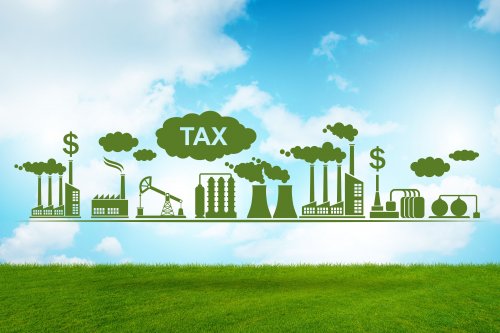In Australia, legislation has been introduced to establish tougher targets for reducing greenhouse gas emissions.
Prime Minister Anthony Albanese has pledged to cut emissions by 43% by 2030 compared to 2005 levels, reports Bloomberg.
The previous government's goal was to cut emissions by 26-28% and reach net zero by 2050.
This would bring Australia closer to countries such as Canada, South Korea and Japan, although it lags behind the actions promised by the US, the EU and the UK.
The Climate Change Bill 2022 was one of a number of laws introduced by the new government in the first session of the new parliament after the election. The Albanese Labor Party included policies to accelerate emissions reductions and increase renewable energy.
Climate Change and Energy Minister Chris Bowen emphasized the importance of this bill.
“It sets our emissions targets in law, it provides a framework for investors to let investors know Australia’s open for business, for renewable energy, for transmission, for storage, to create hundreds of thousands of jobs.” he said.
Australia was considered a global laggard in action to limit emissions, because for 9 years the Conservative government supported fossil fuel
Although Albanese has promised to work closely with international allies and end the country's so-called climate wars, his government's proposals have left some campaigners unsatisfied.
This may have certain risks. After all, to pass the new legislation, Albanese will need the support of lawmakers elected after campaigning for much tougher climate action, including the Australian Green Party and pro-climate independent David Pocock, who hold the balance of power in Australia's Senate, the country's upper house.
The Greens have called for a moratorium on new fossil fuel projects, but the prime minister rejected the move. He argues that this would encourage consumers to use what he sees as more polluting material supplied by other producing countries.
The article noted that the restraint of the coal export sector cost $72 billion will hit the country's economy and will not lead to a reduction in global emissions.
“What you would see is a replacement with coal from other countries that’s likely to produce higher emissions because of the quality of our product.” Albanese said.
Accounting for coal mine emissions in Australia has recently come under scrutiny, and in February 2022 the government said it was reviewing the method used to calculate methane pollution from open pit mines.
Bowen said the government could introduce higher targets for 2035 and 2040. The bill must pass the lower house by the end of next week before heading to the more contentious Senate.
Earlier, EcoPolitic wrote, that Australia plans to reduce emissions by 43% by 2030 from 2005 levels and eliminate import tariffs and taxes on electric vehicles that cost less than $53,580.
As EcoPolitic reported earlier, in Australia the coal-fired power plant will be reopened in the Mellakh commune due to a reduction in the supply of Russian gas.





